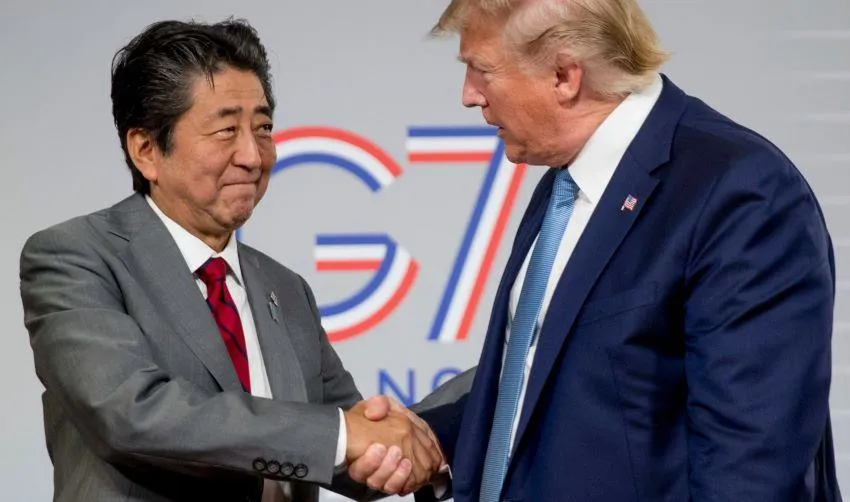
"We probably will be signing it around" the time of the United Nations General Assembly meeting in New York late next month, Trump told reporters.
He also said Abe agreed to have Japan buy excess U.S. corn stocks built up because of trade tensions with China. Abe said the "potential" purchase would be handled by the private sector.
"Big Trade Deal just agreed to with Prime Minister Abe of Japan," Trump later tweeted. "Will be great for our Farmers, Ranchers and more. Really big Corn purchase!"
The accord follows three days of talks last week between Toshimitsu Motegi, Japan's point man on trade negotiations, and U.S. Trade Representative Robert Lighthizer.
The deal "will open up markets to over $7 billion" in American agricultural products, Lighthizer told reporters after the Trump-Abe meeting.
If Japan's parliament approves the trade deal during its fall session, it could take effect a month or two later. But risks still loom, including the threat that Trump will brandish the punitive tariffs he has wielded against China.
The negotiations were unusually short, taking only about a year for a process that often requires years. A speedier deal was in the interests of both countries.
During the talks, Tokyo repeatedly pressed Washington to accelerate the process. The longer the negotiations dragged on, the greater the risk that their scope could expand to areas where the U.S. would make demands unacceptable to the Japanese side.
Some in Washington were pushing for auto import quotas or a currency provision that would bar Japan from competitive devaluation. Tokyo worked to keep the talks to a narrower set of topics -- namely, tariffs on agricultural and industrial goods, along with rules for the digital economy.
Getting results quickly was also important to Trump as American agricultural exports plunge amid the frictions with China. Seeking re-election in 2020, Trump would likely tout the opening of Japanese markets as a win for struggling farmers, who make up a significant part of his base.
Japanese tariffs on American beef and pork would be cut to levels agreed on in the Trans-Pacific Partnership before Trump pulled the U.S. out of the multilateral trade pact. This would enable American exporters to compete on an even playing field with Australia and other TPP members.
The deal also comes amid an increasingly grim outlook for the trade war with China, which escalated Friday with tariff announcements on both sides. The American side's complaints -- which include accusations of intellectual property theft, forced technology transfers, massive industrial subsidies, and security risks from telecommunications equipment maker Huawei Technologies -- are wide-ranging and unlikely to be resolved anytime soon.
Japan likely seemed to Washington the most promising option for getting results before the 2020 election.
The deal would eliminate U.S. tariffs on a broad range of industrial goods. No agreement was reached on scrapping American duties on finished autos -- a touchy topic for Trump, who has railed against the trade imbalance in this area. The two sides will continue discussing the issue in separate talks.
Despite the progress made, uncertainty lingers in Tokyo.
"Everything depends on Trump," said a source familiar with the negotiations. "If he changes his mind, it will upset things that have already been agreed on."
Japan considers the trade deal contingent on Washington not further restricting imports of Japanese vehicles, whether through numerical quotas or through additional tariffs imposed on national security grounds. Abe is expected to seek a pledge to this effect from Trump at the September meeting.
Asked whether Trump had made such a promise, Motegi, who was present at the summit, said that while there had been "no discussion of that" Sunday, the Japanese side had conveyed its concerns in previous talks. The U.S. "respects" this stance, he said.




















